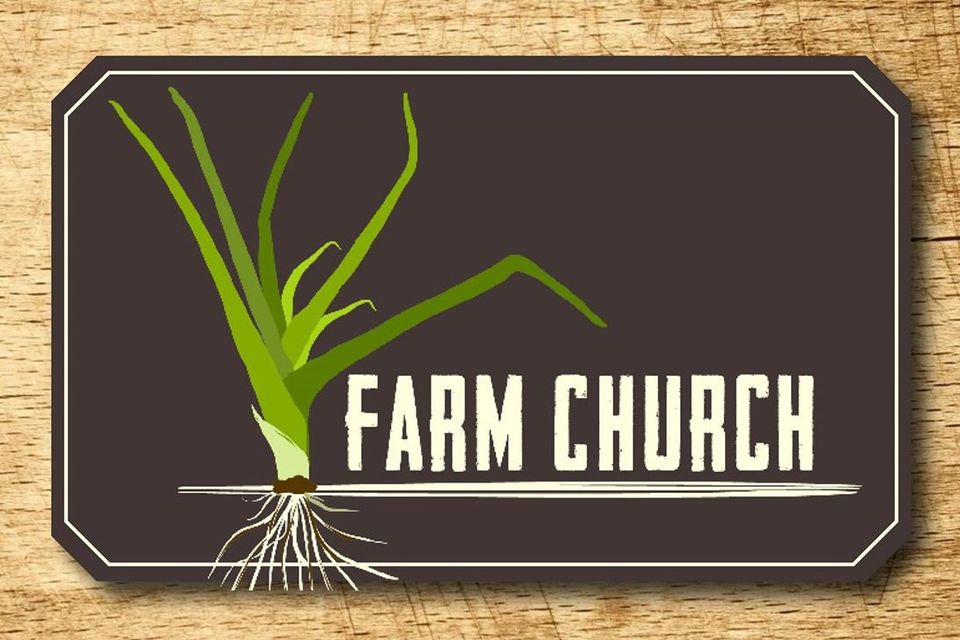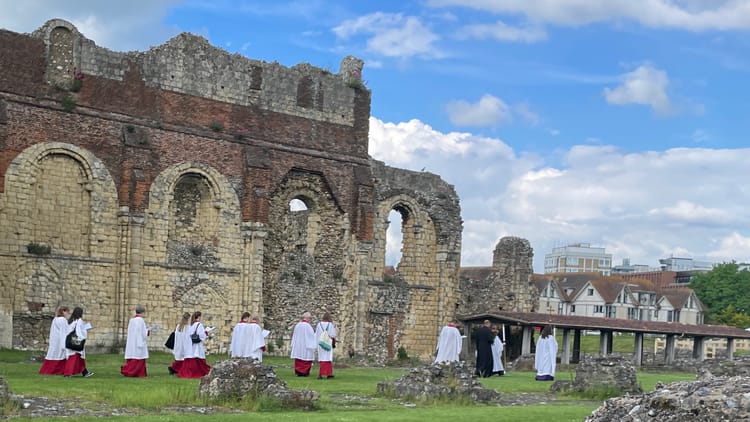Farm Church: where God is doing “an old new thing”

Have you ever prayed and wondered how God is going to renew the church in America?
I know I have.
The whole reason I started writing about food and faith on this blog is because more than seven years ago I started feeling the promptings of God to begin a farm-based ministry.
There were only three problems:
- I had no idea how to begin doing what I felt called to do. I knew no models.
- Back then, when I described this call I would start to cry.
- Most people who listened seemed to think I was a little crazy.
In 2008, “farm-based ministry” was not a term most people in the normal Christian landscape had ever heard
So I waited. And wondered how God was going to renew the church in America. And if the dream I felt I had received from God would ever grow roots and bear fruit.
Over the past year the writing on this blog has turned inexorably toward food and faith. There’s a reason for that: it became time to live into this calling that God has given me.
That’s the real reason I did the first version of the Christian food movement guide: I needed to know that even if I was a little crazy, at least I wasn’t alone.
The first version of the guide showed me I wasn’t alone. Then it showed me there was a hunger for exactly this work. People started contacting me to talk about food and faith connections, possibilities, dreams.
Sometime this fall I realized: the people I am talking to sound like nobody else in the church.
Much of the church sounds fatigued, depressed, frustrated with endless dysfunction. As one clergy friend recently told me, “You don’t want to meet to lament the decline of the church? That’s okay, I think we’ve got that covered. Go do your new thing.”
The people starting farm based ministries or agrarian congregations – the people working at the intersection of food, faith and sustainable agriculture – don’t sound depressed and frustrated.
We sound slightly overwhelmed with opportunity. Slightly confused because we’re figuring out things that nobody has quite exactly tried to figure out yet. And, slightly desperate for funding. Because the new thing God is calling us to do doesn’t fit into established funding models very well. (If I’m honest, we can get fatigued. After all, we’re slightly overwhelmed, confused, and desperate… but in a good way.)
Take this conversation that I had with the Revs. Allen Brimer and Ben Johnston-Krase, two of the co-founders of Farm Church. What’s Farm Church? Well, here you go…

Fifteen years ago, before Allen went to seminary, he and his fiancee (now wife) worked at Michaela Farm in Oldenburg Indiana, a historic faith-based farm. When Allen went to seminary, he met Ben and others who dreamed of ministering together, perhaps in a setting that included agriculture. But this dream seemed like a fantasy.
After seminary, Ben and Allen did what most seminary grads do. They became full-time pastors.
But fifteen years later, in the summer of 2014, there was a reunion. The three families with the land-based ministry idea started talking again. The conversation which once looked like a fantasy now looked more like a dream. Maybe, they started to think, it could even be a goal. They were all ready for a transition and something new. They remembered their seminary conversations and started asking: was starting a ministry together possible, maybe even involving a farm?
Two weeks later while Ben Johnston-Krase slept, he had a dream. In the dream he was called to serve a new church. He accepted the call and went to the church, but there was no church building. The land was a farm. The church was to be called Farm Church.
When Ben woke up, he remembered the Presbyterian Church’s 1001 Worshipping Communities initiative. He knew that through that initiative, new churches begin meeting in unusual places: in diners, in bars.
He wondered, “If you can have church in a train station, why not have a church at a farm? Why not have Sunday school include the kids harvesting eggs and vegetables? What if they did that and then donated the food to the hungry?” He started Googling the name “Farm Church.” There was nothing under that domain name that related to the concept he had imagined.
Twenty-five minutes after Ben woke up, he bought the domain name farmchurch.org.
Then he wondered: was this his call, his future ministry? Or was this something he needed to give to someone else? He asked his wife; she supported the dream. He called his old friend Allen Brimer and told him. Allen immediately said, “I’m in.”
It was Ben’s call, and Allen’s too.
The next stage took months of discernment and prayerful conversation. Together Allen and Ben went through the Presbyterian discernment process for new church planters. They were affirmed to work together as a team. They said goodbye to the churches they were pastoring. As they imagined the church they were called to begin, they realized that it would find its best home in the south, where they could engage people year-round in the work of growing food and faith. Finally they settled on Durham, North Carolina. And they moved there – without knowing how this process would bear fruit. Without having either land or answers.
Ben and Allen and their families are in Durham now, establishing themselves with their local presbytery. They are scouting around for land that could be used for this vision. Through the Presbyterian Church’s 1001 New Worshiping Communities program, they are seeking a planning grant for the first year of $7500. Any further funding from this program requires a match from another funder. So they need to discern how God is at work in this local community and what needs and dreams were there before they arrived. As they wait for funding, they are living on their savings and welcoming donations.
But already Allen and Ben are noticing something important: when they describe their new ministry, people are immediately interested. For each of them, this is unlike any other ministry they’ve begun.
As a pastor myself, I can verify that when you say anything like, “I’m the new minister at the Presbyterian Church” it’s usually a conversation-ender. But when Allen and Ben say, “I’m starting a new thing called a Farm Church, we’re going to grow as disciples while we grow food for those in need,” it’s a conversation-starter. And people respond, “That sounds great, please keep me posted, I’m interested in being involved.”
Yes, you read that right: people are asking them to be added to the church mailing list.
When their kids (who are 11 and 13) went to the playground, they spontaneously shared what their families were up to. They came home saying “Hey, we talked to some kids about Farm Church, and they want to come.”
“Our kids are good kids, but they aren’t natural evangelists,” Allen and Ben told me. “The strength of this idea and the vision that it casts – it’s an old new thing. It’s taking two words and just putting them in concert with each other that strikes a chord for people.”

I ask your prayers for Ben and Allen and for Farm Church. It is not a simple thing to move from a call from God to begin a new thing to having that new thing take life. Pray for all of us working at the intersection of food and faith.
But also, take note: I can confirm that there is widespread interest in any combination of the words “farm” and “ministry.”
When I say “I work for St. Andrew’s Episcopal Church as their half-time priest” the response is usually “that’s nice.” When I say, “I’m starting a farm-based ministry,” usually the conversation continues, and concludes with the other person saying “that’s exciting!”
What is God up to in these days of declining attendance and closing churches?
Only time will tell. But if it has anything to do with people tending gardens, I won’t be surprised.
After all, that’s how the story began.
What intrigues you about the Farm Church story?
Are there innovative ministries combining discipleship and agriculture near you?





Member discussion